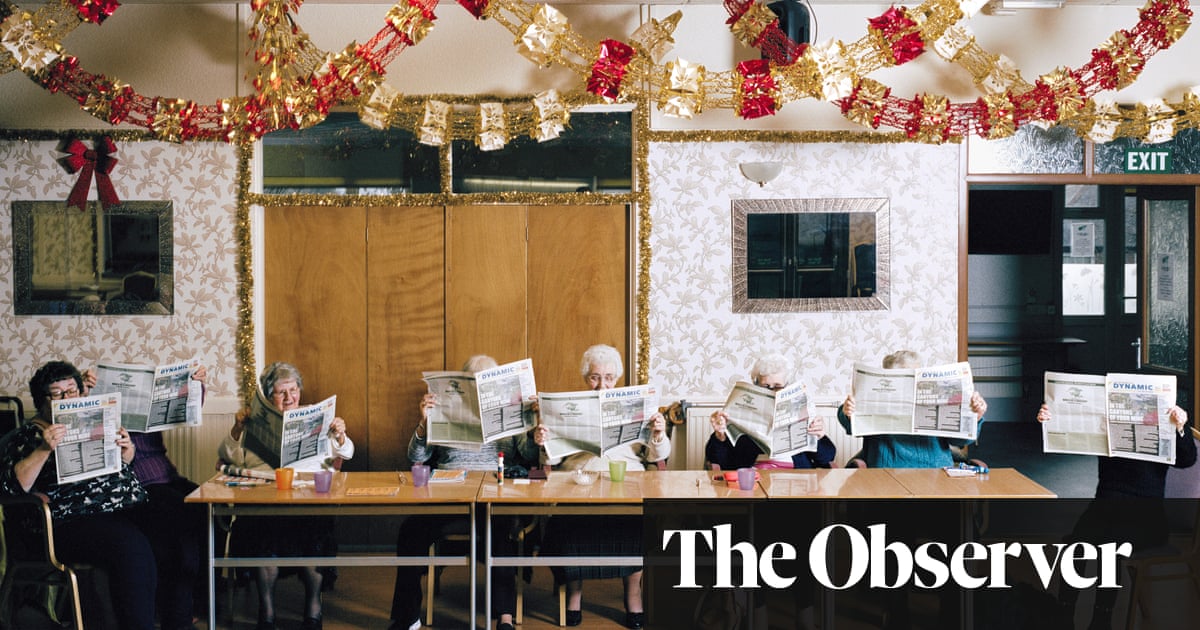
haron Thompson sits in her office. There is one other person who is manning the front desk. The office is quiet, but Thompson’s phone is running hot. She is calling her readers to tell them there will be no paper this week. Or the next.
The Quirindi Advocate had weathered it all – wars, drought, the Great Depression and the global financial crisis – and its doors have never needed to close. Until now.
After surviving the media’s transition to the digital age and four years of relentless drought, 2020 has delivered a paralysing blow. Covid-19 has crippled the Advocate, first through the loss of advertising revenue and now the printing presses in nearby Tamworth are closing.
It’s one of the many regional newspapers to have fallen victim to this pandemic. But unlike many others it is fiercely independent and 100% local; a lifeline that connects remote communities, severed at a time when communication is needed more than ever.
“We need to get it back,” says 80-year-old Lindsay Bridge, a sixth-generation local who’s been reading the Advocate every week since the 1950s.
“Everyone in my family read that paper,” she says. “My grandparents, mum, dad – everyone.”
Launched in 1885 as the Quirindi Gazette and Liverpool Plains Advocate, the newspaper was renamed the Quirindi Advocate in 1925. This July is its 95th birthday. Thompson remains hopeful it will live to celebrate this milestone and stay in circulation until it reaches its centenary.
“I won’t let this newspaper go down without a fight,” she says. And you know she means it.
Nestled beneath Who’d-A-Thought-It Hill, Quirindi has a population of 3,444 and is known as the gateway to the north-west.
At 145 George Street (the town’s main thoroughfare) is a small brick building bearing a green and blue sign with white letters: “The Quirindi Advocate. Established in 1885.” You wouldn’t know it, but you’re standing in the shadow of the town’s beating heart.
Quirindi is known for its blooming sunflowers in summer and its annual rodeo showdown. Anything else you need to know is in the Advocate.
‘Joe Bloggs has got new cows’
Before the pandemic struck, the paper was published every Wednesday. It was distributed in local newsagents, petrol stations, mailed to subscribers or bought over the counter at the Advocate office. Its readership is mostly elderly.
“They get their paper and they sit down with a coffee and read about how ‘Joe Bloggs has got new cows’, or you know, little things that are happening in the town,” Thompson says.
Emily Caldwell, 24, lived all her life in Quirindi until moving to Tamworth a year ago. She’s desperately worried for those like her father, who depend on the local newspaper and the way it has helped build family memories.
“My dad always made a point of collecting it at the newsagent,” she says. “But most of my memories are of my aunt [keeping] an absolutely massive stack of them between the armchairs in her living room and any time we were remotely mentioned in it, she would cut out the clipping and keep it in a little folder. So she has a folder full of clippings filled with our moments in the paper.
“I know that for my dad [closure] will be a really big blow. And if the newspaper never comes back, and I really hope that won’t be the case … that would be a massive blow for the community in general because they wouldn’t have a local voice any more.”
A former print journalist and Murrurundi local, Janie Jordan, agrees.
“The Quirindi Advocate is part of the very rich fabric of our community,” she says. “It’s an incredibly important role that local news plays to provide the essence of what’s going on in a community.
“It’s indicative of what a local newspaper is – to keep us informed and up to date on what is happening. Hyperlocal news is what regional newspapers, like the Quirindi Advocate [are about] … That’s their role.”
Digital transition may be unavoidable
Thompson’s passion for the paper stretches over 18 years employment, having worked there on and off since 1999. Her current role is the sales and advertising manager and she works with just one other person. But back when she first stepped foot in the Advocate office, it wasn’t this empty.
“When I first started here, there were 13 [people] on staff – 14 including our boss.
“I started at the front desk, and it was a lot busier before the world went digital. People would come in with a photo of their wedding, or their first baby or a death notice because things weren’t sent by email.
“But it’s different now. Because of Facebook we don’t get any of that.”
The Advocate building is also home to Quirindi Printing and Publishing. Its owner, a local now based in Sydney, is yet to comment on the paper’s closure. In a statement to readers though, QPP Media said: “We will not be able to publish a newspaper until further notice. We are still here and will be working to keep you up to date with your local news via Facebook and other channels.”
The building was a printing powerhouse for the community. Advocate staff would produce budget and tax books for the local farmers, business cards, and historical books on the town. Meanwhile the newspaper came straight off its own printing presses.
Now it’s no longer a bustling hub of workers churning buckets of black ink for the presses or cutting the thick stacks of paper with “Guillo” the guillotine. The printing floor sits stilll, like a museum.
Thompson walks between the machines, grabbing at the handles and gears, telling stories. She touches the typesetting machine, describing how it suspended a large slab of lead, which would be lowered into the machine to be melted. It produced small metal letters to go into the chase and then into a press to be printed. Metallic puddles dot the floor, pools of lead the only remnant of the process.
On the left side of the printing floor is a rare empty space where three printing presses used to stand, Thompson’s pride and joy. When they were taken away, she says she sat in the gutter outside and cried.
“Those big old presses used to make gorgeous old noises and you’d sit upstairs and hear them going all the time,” she says. “And now, the sound is nothing.”
Thompson’s motherly affection and pride for the building and its history extends to the fierce independence of the Advocate in a time of regional media mergers and shutdowns.
“We’ve always been a local paper and that’s how we’ve stayed. We’d travel to Currabubula, Wallabadah, Willow Tree and other places to do stories before the coronavirus, so we try to only be a local newspaper. And I think that it’s important for us to be independent so that we can keep that going.
“If we get taken out by Fairfax [now Australian Community Media] or somebody else, then you’re going to get all that national stuff [and] international stuff, which is not our local little paper.
“We have nothing to do with [Australian Community Media] … I think it has its place and we have got ours.”
‘It’s a struggle, but we hope to be here for 100 years’
The Advocate’s place in the digital age remains untapped. Its online presence – and the only way of communicating with its readers since shutting its doors – is solely on Facebook. But with the drought affecting its business, and now the coronavirus shutdown, a digital transition might be unavoidable.
“We may soon be digital,” says Thompson. “That’s all up in the air; nobody knows what’s happening.
“Our readership is a lot older and a lot of our readership don’t have iPads or computers, so it’s really important that people get to see things that are not on the internet, or on Facebook, or Instagram, or on Twitter.”
Lindsay Bridge is among that older readership: “I’m not online, so [moving the paper online] wouldn’t benefit me at all. The paper is very, very important. If we don’t have it, we’ll lose our identity.”
Jordan, however, believes a move to digital is inevitable.
“How can a printed newspaper pivot unless it’s prepared to be digital and change the way it delivers news,” she says. “There is an argument for the Quirindi Advocate to change its format to be digestible and have more long-form stories online and [on] its Facebook page
Although times may be changing, Thompson isn’t feeling defeated: “It’s a struggle, but we hope to be here for 100 years. It’s our community link, not Tamworth’s, not Sydney’s, not anybody else. It’s ours.”












